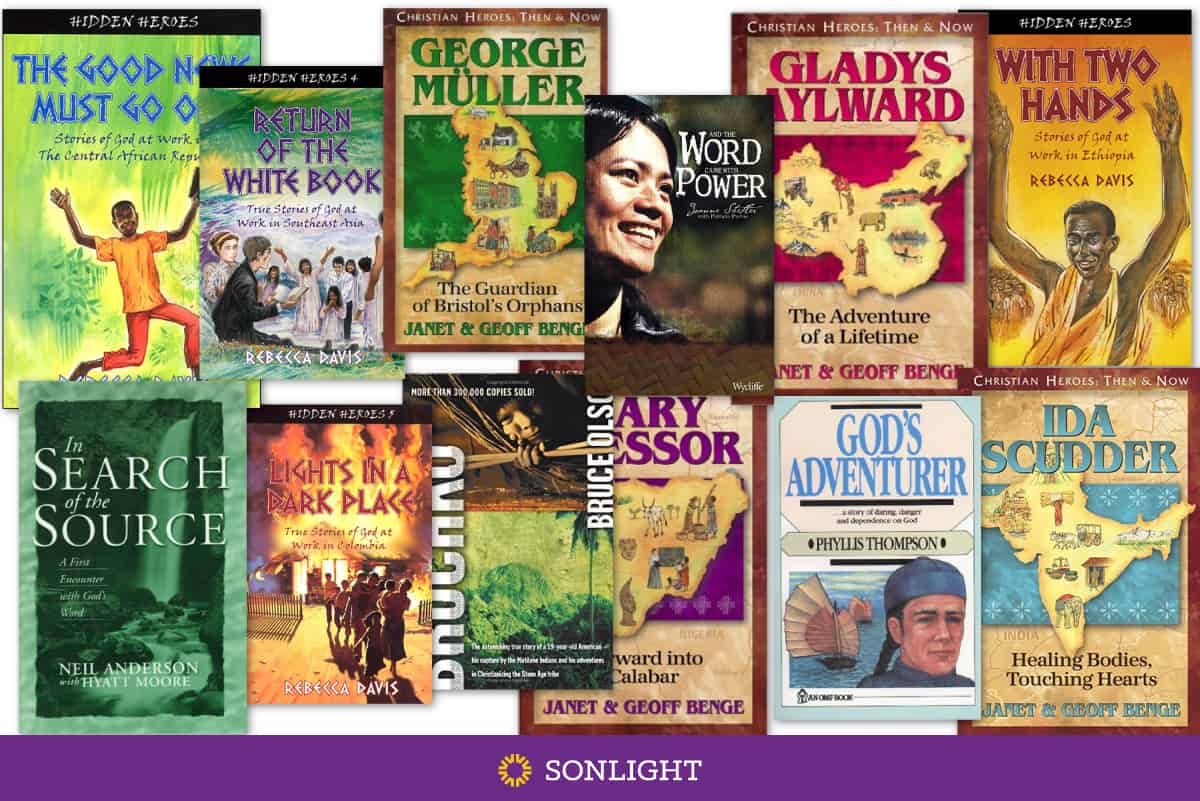Biographies are more helpful than self-help books. Whether it’s the autobiography of a famous person or a biography of someone from the past, you can learn more from these books than you might think. When you read a biography, you get an intimate look into the life of that person. You see how they operated, you peel back the layers of their character to see what made them tick.
No one is perfect and that’s exemplified in most biographies. All of us are fallible. We can and will make mistakes. Who better to learn from than people who have succeeded while making mistakes?
Immersed yourself in the lives of colonial Americans, Germans and Jews before and during World War II, Puritans, African Americans during and after the Civil War, a self-proclaimed “hillbilly,” and missionaries in Papua New Guinea, China, the Amazon River basin, and the Middle East. Note how these Christians raised their children, worked through incredible grief, persevered through loneliness, overcame bitterness, and loved Jesus first. These are the people who lived full lives and died well, and learn how to live well that you may die well.
Biographies Reveal the Good and Bad
Not every biography has been a good one. Daniel Smith saw incredible fruit to his gospel witness in China. But he hardly mentions his children, who were dropped off at boarding schools or left with nannies and probably spent much less time with their father than did the Chinese evangelists with whom he worked. We can learn from his faith and boldness in evangelism, but we can also learn what not to do when we see how he ignored his ministry to his children.
Biographies Encourage Us to Reach for Something More Meaningful in Our Lives
Our American generation is an easily self-satisfied generation. It’s acceptable to move back in with our parents for extended seasons because a job wasn’t fulfilling. Spending half one’s paycheck on manicures and new clothing is normal.
Read about people like Darlene Rose. She gave up everything to go to Papua New Guinea with her new husband to share the gospel with unreached tribes. Separated from her husband, she was imprisoned in a Japanese labor camp during World War II. After the war, her husband was dead and everything she owned was gone. But she didn’t stop. She spent many more years on the mission field, sharing the Gospel with those who never before heard it.
Or read about Frances Havergal, who wrote the hymn, “Take My Life and Let It Be.” God used each verse she wrote to convict her. “Take my silver and my gold / Not a mite would I withhold,” she wrote in the song. And one day, she decided that meant she should donate her jewelry to the Church Missionary Society.
“The Lord has shown me another little step,” she wrote to a friend, “and of course I have taken it with extreme delight.”
Biographies challenge us to aspire to greater purpose. Hopefully, these brief biographies will prompt you to want to know more.
Declaration of Independence Signers
- Adams, John
- Adams, Samuel
- Bartlett, Josiah
- Ellery, William
- Floyd, William
- Gerry, Elbridge
- Hancock, John
- Huntington, Samuel
- Livingston, Philip
- Paine, Robert
- Sherman, Roger
- Thornton, Matthew
- Whipple, William
- Williams, William
- Wolcott, Oliver
